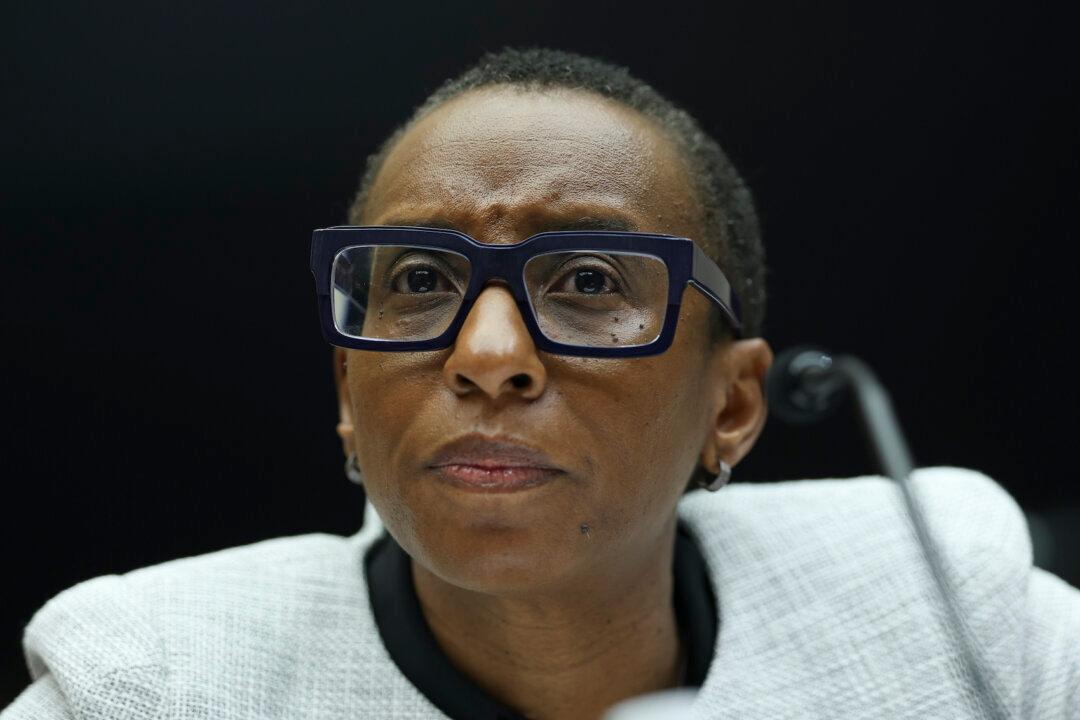Harvard University President Claudine Gay has been accused of plagiarizing content from other scholars.
“I have obtained documentation demonstrating that Harvard President Claudine Gay plagiarized multiple sections of her Ph.D. thesis, violating Harvard’s policies on academic integrity. This is a bombshell,” Christopher F. Rufo, a senior fellow at the Manhattan Institute think tank, said in a Dec. 11 X post.





